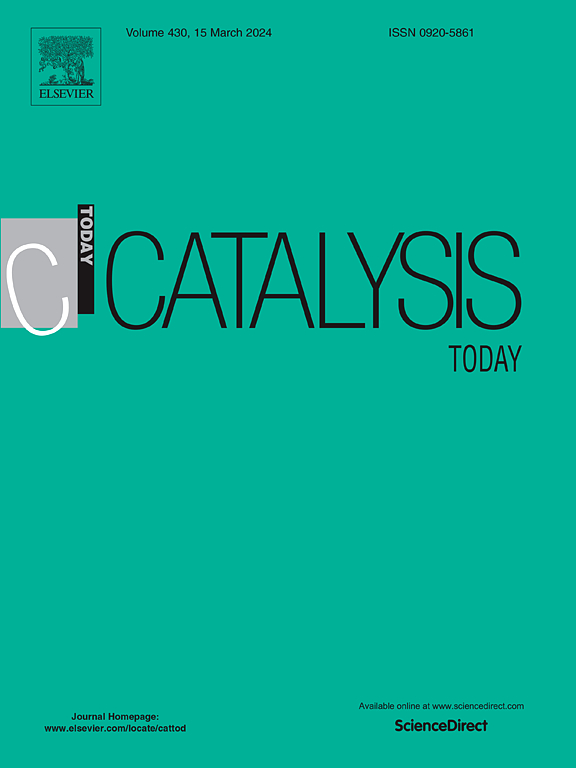Fischer-Tropsch合成中提高(C9-C16)范围可持续航空燃料选择性的策略
IF 5.3
2区 化学
Q1 CHEMISTRY, APPLIED
引用次数: 0
摘要
费托合成(FTS)是一种很有前途的生产可持续航空燃料(SAF)的方法,它将来自可再生能源的合成气转化为航空燃料范围内的碳氢化合物(C9-C16)。然而,由于传统的Anderson-Schulz-Flory (ASF)分布倾向于广泛的烃分布,控制产物选择性仍然是一个挑战。这篇综述严格审查了各种实验证明的策略,以增强和缩小在FTS中SAF的选择性。关键的方法包括调整催化剂的氧化还原特性,改变还原环境,优化金属-载体相互作用,改变反应平衡,以及加入合适的促进剂。此外,还探索了用CO2稀释合成气原料作为抑制甲烷生成和最大化中馏出物产量的额外手段。这些策略和机器学习共同有助于克服ASF限制,在提高整体工艺效率的同时,实现更有针对性的喷气燃料碳氢化合物合成。通过改进这些方法,FTS可以进一步优化,以支持向更清洁、更可持续的航空燃料过渡。本文章由计算机程序翻译,如有差异,请以英文原文为准。
Strategies to enhance the (C9-C16) range sustainable aviation fuel selectivity in Fischer-Tropsch synthesis
Fischer-Tropsch synthesis (FTS) is a promising route for producing sustainable aviation fuel (SAF) by converting syngas derived from renewable sources into hydrocarbons within the jet fuel range (C9-C16). However, controlling product selectivity remains challenging due to the conventional Anderson-Schulz-Flory (ASF) distribution, which favors a broad hydrocarbon distribution. This review critically examines various experimentally demonstrated strategies to enhance and narrow the SAF selectivity in FTS. Key approaches include adjusting catalyst redox characteristics, modifying the reduction environment, optimizing metal-support interactions, shifting reaction equilibrium, and incorporating suitable promoters. Furthermore, syngas feed dilution with CO2 have been explored as additional means to suppress methane formation and maximize mid-distillate production. These strategies and machine learning collectively contribute to overcoming ASF limitations, enabling a more targeted synthesis of jet fuel-range hydrocarbons while improving overall process efficiency. By refining these approaches, FTS can be further optimized to support the transition toward cleaner and more sustainable aviation fuels.
求助全文
通过发布文献求助,成功后即可免费获取论文全文。
去求助
来源期刊

Catalysis Today
化学-工程:化工
CiteScore
11.50
自引率
3.80%
发文量
573
审稿时长
2.9 months
期刊介绍:
Catalysis Today focuses on the rapid publication of original invited papers devoted to currently important topics in catalysis and related subjects. The journal only publishes special issues (Proposing a Catalysis Today Special Issue), each of which is supervised by Guest Editors who recruit individual papers and oversee the peer review process. Catalysis Today offers researchers in the field of catalysis in-depth overviews of topical issues.
Both fundamental and applied aspects of catalysis are covered. Subjects such as catalysis of immobilized organometallic and biocatalytic systems are welcome. Subjects related to catalysis such as experimental techniques, adsorption, process technology, synthesis, in situ characterization, computational, theoretical modeling, imaging and others are included if there is a clear relationship to catalysis.
 求助内容:
求助内容: 应助结果提醒方式:
应助结果提醒方式:


